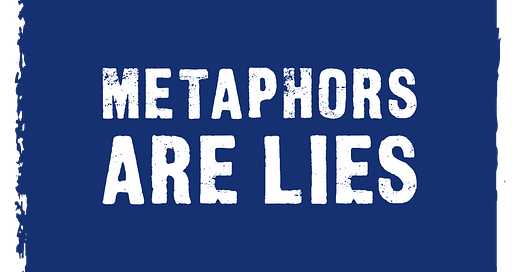

Discover more from Metaphors Are Lies
This behavior should be illegal, and I will discuss how it can be controlled in a little bit. But Amazon appears to have deliberately destroyed genre magazines in a bid to control their distribution for its own benefit. Mobsters could not have done this better.
The Verge article, unsurprisingly since the Verge editors are almost constitutionally incapable of seeing the downsides of capitalism, doesn’t lay this out clearly, but Amazon seems to have used its market control to force magazines to choose between Amazon’s preferred distribution method or going under.
Amazon used to run a subscription service in its Kindle store. Subscribe to a magazine and it would show up in your Kindle when the new issue was released. It was a nice service for subscribers, but under the covers, it was not so helpful for the magazines.
According to the article, Amazon kept all the subscriber information to itself. Meaning that when I subscribed to a magazine, the magazine got most of my money but didn’t get any of my contact information. Why was that important? Because the relationship was owned by Amazon. And when Amazon decided this year that they would no longer support subscriptions on Kindles, the magazines had no means of contacting the subscribers directly. And since Amazon is a de facto e-magazine monopoly in the US, these magazines are screwed. Fantasy, for example, is closing.
Amazon has a solution though. They are inviting select magazines to participate in their Kindle Unlimited program. Readers who subscribe get to read whatever they want, and authors and magazines get a percentage of subscription fees based on an algorithm that Amazon determines. Of course, to participate in Kindle Unlimited, your product cannot be sold on any other e-book platform. Meaning, of course, that these magazines are forced to be tied even closer to Amazon.
Sammy “The Bull” wishes he had it this good.
This is the perfect example of Cory Doctorow’s “enshitification”. Amazon has effectively captured a market and is now squeezing all of the value out of the producers. It harms the consumers, because it limits choice and raises prices in the long run. It obviously harms the producers, as it drives them into the economic ground. And it harms the creators, as it forces the economic benefits of creation into Amazon’s hands rather than theirs. It should not be allowed.
Outside of AWS — what most of us know as the cloud — Amazon largely does not make money. They use the money from investors and AWS to scale to the point where they can price out competitors and use that power to enforce damaging conditions, like the ones described here, on their suppliers. This should not be allowed.
Even if you want to grant that Kindles have come to their monopoly status honestly, through nothing other than consumer choice, Amazon still should not have been allowed to do some of the things that they did. They should not have been allowed to keep the subscription contact information away from the magazines. They should not have been allowed to force producers of Kindle Unlimited content into exclusive contracts.
To those that argue that those contracts were entered into willingly, I have two comments. First, given the power disparities between content creators and the largest content distributor in the world, the idea that such contracts are between equals is ludicrous. Second, I don’t care.
Amazon is a corporation, a creation of the government. They get substantial benefits from that status and as a result, it is the responsibility of the government to ensure that those advantages do not rebound against the rest of the society. In this case, society is clearly being harmed by Amazon. Suppliers, creators, and consumers are being damaged by the power Amazon has been allowed to accumulate to itself. And even if Amazon was not the creation of the government, the market that it operates in is. The laws the ensure competition operates at a level more sophisticated than “here is my gun, give me your goods” are created and enforced by a democratic government. If those laws do not ensure a healthy society, if that market does not serve to create a healthy society, then they need to change.
Democratic control of the economy is the first and primary principle. When we don’t have that, when we abdicate our responsibility to ensure that the economy works for everyone, we end up with companies allowed to crush smaller businesses and creators at a whim. We end up with all the money and power flowing to a handful of companies, and thus people, instead of being shared throughout society, as it should be. The loss of magazines is a small story, but it reveals so much about what has gone so wrong with our economy and our society.
We can choose better.









